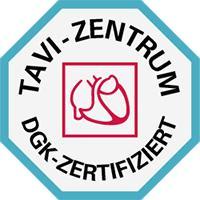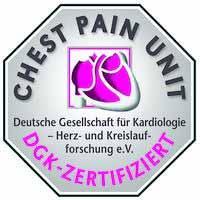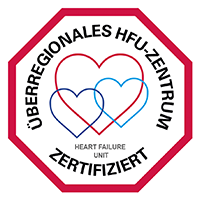The normal heart rate is 60-90 beats per minute. A condition with the heart rate below the above value is called bradycardia.
If the heart rate falls below 50 bpm, it may already indicate the presence of a disease. A persistent, rare heartbeat for several days requires a medical examination. A drop in heart rate between 40 and 35 bpm is dangerous. In this case, the brain begins to feel a lack of oxygen, and such a condition also requires immediate medical attention.
Content
- When to seek medical help?
- What causes bradycardia?
- Types of bradycardia
- What are the symptoms of bradycardia?
- How is bradycardia diagnosed in Germany?
- Treatment options for bradycardia
- The prognosis for patients with bradycardia
- Hospitals for treatment in Germany
- The cost of treatment in Germany
- Undergoing treatment in Germany with Booking Health
When to seek medical help?
Bradycardia is not necessarily a disease that requires the involvement of healthcare providers. In some cases, it is a variant of the physiological norm. For instance, for athletes, the normal heart rate may range between 40-60 bpm, because their heart muscle is trained.
It is necessary to be concerned about similar conditions if they occur regularly and are causing uncomfortable symptoms, and, especially, when other cardiological disorders have already been detected.
What causes bradycardia?
Bradycardia may occur due to physical factors and pathological influence. The most common physiological causes of bradycardia are sleep and increased vagal tone. At night, the human heart tends to slow its rate of contraction naturally because the blood needs of the body are lower.
Athletes who practice long-duration sports (running, swimming, cycling, etc.) have a slower basic heart rate. For example, professional cyclists record their heart rate immediately upon awakening, and it is from 30 to 35 bpm.
The pathological nature of the condition may be influenced by sinus node dysfunction, hypothermia, hypothyroidism, Roemheld syndrome, anorexia, or obstructive sleep apnea.
Statistics regarding the number of the patients with bradycardia are not known. This is due to the fact that in many cases the slowing of the sinus rhythm is physiological and does not cause any clinical manifestations.
Types of bradycardia
According to the localization of the detected abnormalities, a distinction is made between bradycardia associated with disorders of automatism in the sinus node, and bradycardia in heart block (sinoatrial or atrioventricular), in which impulse conduction between the sinus node and atria or both atria and ventricles is impaired. Heart rate can decrease under physiological conditions (in athletes, in sleep, and at rest) indicating functional or physiological bradycardia; pathological bradycardia, in turn, is accompanied by the course of various diseases.
What are the symptoms of bradycardia?
To the symptoms of bradycardia belong:
- Dizziness. As the heart rate drops, the systemic blood flow worsens and the blood pressure drops. As a consequence, the tissues of the body and, above all, the brain are less supplied with oxygen.
- Fainting. Fainting occurs when the body begins to react acutely to the oxygen deprivation.
- Dyspnea. Impaired respiratory function appears during physical exertion, as bradycardia slows down blood circulation and forms blood stasis in the lungs.
- Pronounced fatigue. When a bradycardia attack prevents the right amount of oxygen to the muscles, they are not able to work as they used to and with the necessary force, which causes weakness, fatigue and other general ailments.
- Pallor of the skin. This condition appears due to low blood pressure.
- No significant increase in heart rate on exertion. The heart rate increase is a normal body response to physical activity. So, the lack of its adequate increase is a symptom of heart pathology.
- Pain in the chest area. This is a manifestation of a serious dysfunction of the cardiovascular system. It usually appears when bradycardia is joined by a brief attack of angina.
How is bradycardia diagnosed in Germany?
Bradycardia is diagnosed not only by the minimum number of heart beats per minute. The pathology is also calculated by auscultation of the heart. The best method for it is an electrocardiography (ECG). Thanks to this study, not only bradycardia, but also other possible abnormalities, such as atrioventricular block, can be detected.
A person with an established diagnosis is usually prescribed various tests to determine the cause of the heart rhythm disturbance.
Instrumental methods for diagnosing bradycardia include:
- Daily Holter monitoring.
- Ultrasound scanning of the internal organs.
- Esophagogastroduodenoscopy (EGD).
- Electroencephalography.
- Echocardiography.
If a patient is diagnosed with hypothyroidism, he will have to check the level of thyroid hormones in the blood.
Treatment options for bradycardia
Before starting treatment in a hospital in Germany, a comprehensive medical examination is indicated. Only after identifying the underlying cause can the healthcare provider prescribe therapy. The main treatment methods include:
- Drug therapy. At the hospital in Germany, patients are offered either outpatient or inpatient treatment. If the patient is elderly, it is better to undergo treatment in the therapeutic department, where they will be under the constant supervision of doctors and nurses.
- Therapeutic and prophylactic procedures, including modified physical activity, compliance with the daily routine, supplement therapy as prescribed by the healthcare provider for prevention.
- Surgical intervention. Radical measures such as surgical interventions are resorted to when a concomitant disease affects the decline in heart rate. Only after all necessary medical examinations and tests, the doctor may recommend the surgical intervention.
But again, in any case, treatment of bradycardia in the hospital in Germany begins with proper diagnostics, since the successful outcome of treatment depends on determining the exact cause of the illness. If no diseases that potentially could cause bradycardia are diagnosed, and there are no symptoms of the disease, bradycardia will not be aggressively treated.
If the disease occurred due to a certain medical condition, such as hypothyroidism or electrolyte imbalance, it is usually enough to treat this condition to stabilize the heart rate. If bradycardia is a consequence of taking medication, the healthcare provider will recommend reducing the dose or prescribing an analog of the drug being taken that does not cause changes in heart rate. If for some reason it is not possible to take these measures, the patient may be advised to have a pacemaker implanted.
The pacemaker consists of:
- A generator of electrical impulses, which are necessary for the contraction of the heart muscle.
- Sensors and a microcomputer, which help the heart rhythm to be analyzed and adjusted.
All the components of the pacemaker are under the skin, are invisible, and do not cause any discomfort. A person can lead a full life without restrictions in physical activity and other usual activities. The device is made of biologically inert materials (titanium and others), so the body tissues reject it very rarely.
Due to the vast experience of medical professionals, pacemaker implantation in the hospital in Germany is a simple, straightforward, and very short-lasting intervention. Patients from all over the world come to Germany to have this procedure done. This can be explained by the following:
- German heart surgeons have excellent qualifications and extensive experience.
- German hospitals use state-of-the-art equipment for diagnostics and surgeries.
- Doctors use high-quality medical products and advanced materials.
- Germany offers highly effective rehabilitation medicine.
In Germany, specialists implant modern pacemakers from the best manufacturers in the world. These devices last a long time, and are distinguished by their reliability and smooth operation.
After pacemaker implantation in Germany, the patient undergoes complete rehabilitation. And this is another significant advantage of having this procedure done in the hospital in Germany, because life with a pacemaker takes some getting used to.
No matter the cause of the problem, treatment for bradycardia involves getting the heart rate up to a level where there is enough blood flow. Untreated bradycardia or improper treatment can have serious consequences, from fainting and general worsening to paroxysms and death.
The prognosis for patients with bradycardia
The prognosis for bradycardia can be adversely affected by the presence of various heart lesions. The possible consequences of bradycardia can be considerably aggravated by the occurrence of Stokes-Adams seizures.
In some cases, it is sufficient to adjust the lifestyle or hormonal status to normalize heart function, while in others, complex treatment and lifelong monitoring is required. The prevention of the development of the pathology includes, first of all, accustoming to a healthy lifestyle, prevention and timely treatment of diseases that may provoke this condition.
Bradycardia is a disease that can cause serious complications. Since in the early stages of development, the disease does not show visible symptoms, specialists recommend that all people undergo routine check-ups. Timely detection of the disease greatly simplifies its treatment.
Hospitals for treatment in Germany
Heart blocks and arrhythmias are one of the most common causes of sudden cardiac death worldwide. Heart rhythm and conduction disorders can occur at any age. Many diseases of the heart muscle lead to a disturbance of impulse transmission through the cardiac conduction system or their generation in the sinus node.
Highly specialized German hospitals use the most effective methods for treating heart rhythm and conduction disorders. For this purpose, German healthcare providers may recommend the implantation of a pacemaker to the patients. Such treatment approaches significantly increase the duration and quality of life of patients with cardiovascular diseases.
The following hospitals have the lowest prices for bradycardia treatment in Germany:
- Asklepios Municipal Hospital Bad Wildungen.
- Academic Hospital Eichsfeld Heilbad Heiligenstadt.
- St. Antonius Hospital Eschweiler.
- Hospital Waldbrol Oberberg.
- Academic hospital zum Heiligen Geist Frankfurt am Main.
Contact Booking Health for information about the medical services the mentioned German hospitals provide.
The cost of treatment in Germany
When requesting treatment, the German clinic asks for medical information about the patient's condition. Based on this information, the hospital's accounting department will draw up a preliminary cost of treatment. It is important to remember that the cost of treatment is not final. After the patient is discharged from the hospital, the accounting department of the clinic will make a final calculation based on the actual medical services provided to the patient. Thus, the final cost of treatment may change either upward or downward.
However, the average prices for bradycardia treatment in Germany are as follows:
- The prices for bradycardia diagnosis start at 482 EUR.
- The cost of treatment with conservative therapy starts at 1,667 EUR.
- The prices for cardiac rehabilitation in German hospitals start at 566 EUR.
You are welcome to contact Booking Health for the establishment of the preliminary cost of treatment in Germany.
Undergoing treatment in Germany with Booking Health
Going through countless web pages in search of the best medical facility for treatment is overwhelming. Besides, it is difficult to make a competent decision on the hospital for treatment. It is safer to use the services of an experienced medical tourism company that knows all the nuances of treatment abroad and works with the leading hospitals in Germany.
Booking Health has significant experience in the organization of treatment in Germany for foreign patients. We prepare individual offers from several hospitals which are ready to admit the patient without delay.
All you need to do is fill in the request form on our website so that we can contact you and answer all of your questions.
Authors: Dr. Vadim Zhiliuk, Dr. Sergey Pashchenko



















